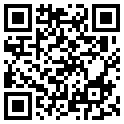Panic attacks can occur quickly and without any warning. Oftentimes, it is an incredibly overwhelming experience that can severely impact a person in myriad ways. Fortunately, being aware of them and creating a plan to combat these symptoms can go a long way in minimising adverse effects and preventing them altogether.
Panic attacks are not as rare as you would think. In fact, research shows that over 10% of the population will have one at least once in their lives. While it’s very difficult to predict when the next one might occur, you can reclaim some power by strategizing ways to manage your panic attacks better.
In this article, you’ll learn methods to slow down and stop a panic attack – and even ways to minimise anxiety. These tips are also helpful if you’re around someone who is currently having one.
1. Remember that it’s temporary
While it may seem frightening at the time, it’s helpful to remember that these sensations will pass and will not harm you. Try recognising that this concentrated moment of anxiousness is only temporary and will pass shortly.
Within ten minutes of starting, panic attacks usually reach their peak intensity, after which the symptoms start to lessen.
2. Breathe deeply
Managing a panic attack can often be accomplished through the act of taking deep breaths. Hyperventilating and chest tightness are two symptoms of panic attacks that can cause shallow breathing. Anxiety and stress symptoms can get worse with this breathing pattern.
Instead, make an effort to breathe deeply and slowly. Breathe in deep from your abdomen, filling your lungs gradually and steadily, and count to four on each inhale and exhale.
The “relaxing breath” or 4-7-8 breathing technique can also be used. With this method, the user inhales for four seconds, holds their breath for seven seconds, and then gently exhales for eight seconds.
Note that for certain individuals, deep breathing can exacerbate panic attacks. In these situations, the individual may attempt to concentrate their attention on an enjoyable activity instead.
3. Locate a focus object
Finding something to give their undivided attention to while having a panic attack can be helpful for some people. To do this, select one thing you can see clearly and carefully note as much about it as possible. For instance, you might observe that the hand of a clock is a little crooked and that it jerks when it ticks, or you may notice the exact texture of the bench you’re sitting on.
Identify the object’s patterns, colours, shapes, and dimensions to yourself. Your panic attack symptoms will lessen if you concentrate all your attention on this thing.
4. Take prescribed medication
A doctor can suggest a take-as-needed drug depending on how severe the panic episodes are. Usually, these drugs start working right away. Some have benzodiazepines or beta-blockers in them. A beta-blocker like propranolol lowers blood pressure and calms an erratic heartbeat.
Doctors frequently prescribe benzodiazepines like Valium and Xanax for panic attacks. However, these medications have considerable potential for addiction, so patients must take them exactly as directed. They can also have potentially fatal side effects when combined with narcotics or alcohol.
Additionally, a doctor may discuss selective serotonin re-uptake inhibitors, known for aiding in preventing panic episodes in the first place.
5. Be mindful of your triggers
A person’s panic attacks may frequently be brought on by the same triggers, such as cramped areas, crowds of people, or financial difficulties. When you learn how to avoid these triggers and to manage your life around them, you’re less likely to experience panic attacks, and with reduced intensity as well.
Conclusion
Panic attacks can be a very frightening experience, especially if it’s your first time. They can cause significant mental turmoil and physical symptoms mirroring a heart attack like difficulty breathing and chest pain. Fortunately, panic attacks can be managed with mindfulness and medication when necessary.
Consider consulting a healthcare professional if your panic attacks are recurrent and intense. The MYCLNQ app allows you to have online medical consultations with a wide range of specialists to ensure that you will always be able to get the help you need, whenever you need it. Contact us today to learn more!


